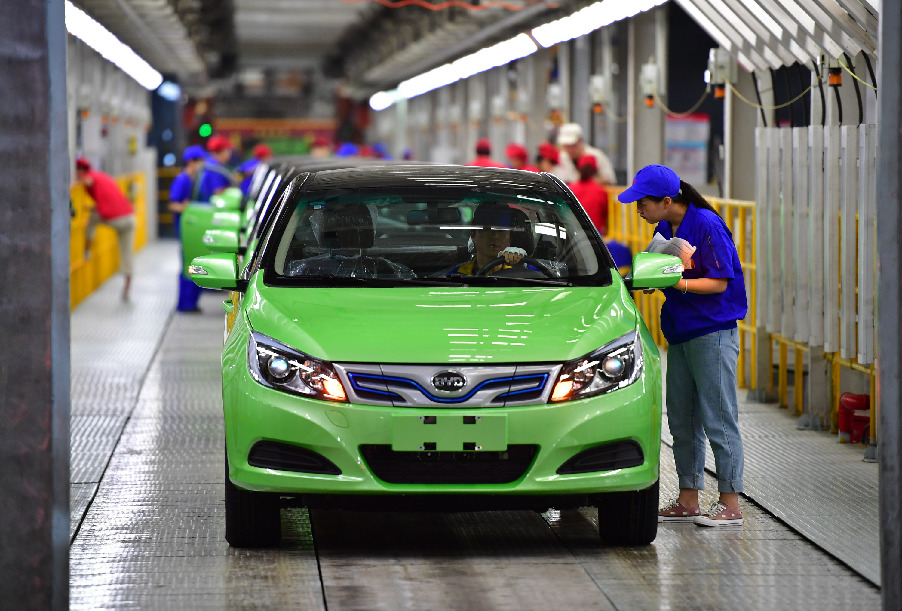
A new energy vehicle of China's domestic brand is about to come out of the assembly line in Xi'an, Shaanxi Province. (Xinhua/Shao Rui)
CHANGCHUN, July 17 (Xinhua) -- China's new energy car manufacturers are sparing no effort in making their cars "smarter" to attract more consumers.
Green cars have seen rapid growth in China in the past decade, with sales rising from fewer than 10,000 in 2009 to more than 1.26 million in 2018. But the industry is also seeing challenges as the government slashed subsidies and as foreign brands make inroads into China with car factories.
At the ongoing 16th China (Changchun) International Auto Expo, domestic brands like FAW, BAIC, BYD and WEY are all displaying a variety of new energy vehicles (NEV), featuring smart technologies and long ranges. Purchasing subsidies are also offered.
"NEVs are well equipped and quite smart," said customer Li Guangzhi. Li has decided to buy a NEV at the expo for daily commuting. "Green cars are environmentally-friendly and save money."
Sales of NEVs in China are steady. According to the China Association of Automobile Manufacturers, NEV's output and sales in China reached 614,000 and 617,000 in the first half of 2019, up 48.5 percent and 49.6 percent year on year, respectively.
The Chinese government has gradually decreased subsidies for green cars since 2017. The subsidies will be completely scrapped by 2020. The change of policies is driving players in the industry to reinvent themselves for better performances.
Changing from policy-driven to market-driven, China's NEV industry is still showing vitality to attract new entrants.
Fan Jingtao, a staff at Chinese carmaker Dongfeng's booth, introduced the upcoming pure electric car E3, which is expected to sell at a starting price of 100,000 yuan (14,549 U.S. dollars), with a range of 405 kilometers. The car model will be equipped with the company's latest smart system. Many visitors lined up at the booth to experience it.
At the expo, 5G technology, navigation systems, sensing technology and intelligent transportation systems are also being demonstrated.
Song Bowen, at the BAIC's booth of the expo, said that with the adjustment of subsidy policies, the company has increased its investment in core components to meet consumers' demand.
"Our best-selling model, the EU5R500, has a battery equipped with a pre-heating system, which suits the winter climate in northeast China, while the upcoming EC5 model will feature smart electronic controlling," said Song.
Song also expressed anxiety about sales following the subsidy decrease.
"But I believe NEVs will be the future trend of the auto industry," he said.



